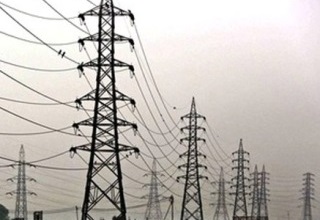Proposed power tariff hike is untenable & unlawful: KASSIA
Updated: Apr 21, 2014 02:02:05pm

“On behalf of the small scale industry, KASSIA has filed a series of objections arguing that Bescom’s petition for tariff revision is not maintainable since it has been filed beyond the period prescribed that is to say, ‘not less than 120 days before the commencement of financial year’, in other words, it should have been filed on/before November 30, 2013.
KASSIA was represented at the hearing by Honorary General Secretary, A Padmanabha, Treasurer, R Raju, and Panel Chairman on Energy, M G Rajagopal who filed objections on behalf of the association.
“The proposal to hike tariff by 66 paise per unit for all category of consumers except BJ/KJ and IP while set to meet the gap of Rs 1300 crore for FY 2015 has been made without any effort to realize the arrears outstanding from water works, street lights, amounting to Rs 2868.34 crore. The proposed hike for all categories is unjustified especially in case of SSIs (LT 5 and HT 2 (a) categories) which are subject to load shedding, and unscheduled interruptions leading to loss of man-hours and production,” KASSIA said.
Further, “as per GOI’s 2006 National Tariff Policy it was mandated that tariff fixed from 2011 should be within plus or minus 20 per cent of cost to serve. Despite lapse of three years after the policy was laid down, Bescom has not worked out cost-to-serve and its proposed tariff hike may exceed the benchmark of plus 20 per cent of cost-to-serve. Since this will constitute a violation of the national policy, the petition has to be rejected,” it said.
In addition, Bescom’s proposal to purchase 862 MU at 576 paise per unit disregards the Commission’s Tariff Order of 2010 which had put a cap of 496 paise per unit for short-term power purchase. KERC should therefore reject the purchase of power at high cost.
Another objection is that Bescom has been notoriously slow in completing metering of DTCs which should have been completed by December 2010 as per Commission’s direction. Progress registered even after a lapse of 3 years is around 50-60 per cent (only 80,408 metered out of 1,58,662 DTCs). DTC metering is extremely important for LT line loss calculation, and helps to cut down line losses, it said.
KASSIA has also noticed that LT losses are mounting since additional HT lines have not been drawn.
Also, unmetered consumption of IP sets which are a drain on Bescom have not been regularized though Government had given it time till March 2012.
Notably, Section 55 of EA 2003 mandated that all installations be metered by 2005. However, only 9.60 per cent of IP sets have been metered, resulting in arbitrary assessment, wrong line losses, wrong subsidy, wrong forecast of power sector planning.
KASSIA has also said there has been only 10 per cent progress in completing the first phase of Niranthar Jyothi for supplying power for rural consumers and regulated supply to IP sets, the deadline for which was August 2011.
It has also pointed out that an upward revision in tariff has become the norm ever since the passing of KERC Act 1999.
“In the absence of domestic generation, the regular increase in daily demand which has gone up from 120 MW to 200 MW, and shortage of installed capacity of about 4500 MW, will compel Escoms to buy power from outside at a higher cost and thus push the prices further up. The Commission may therefore advise the Government to establish small gestation period generators on a war footing, such as Diesel Generators or Gas Turbine Generations whose gestation period is one year compared to four years for hydel and thermal generators,” it said.
Significantly, pre-paid meters have not come into force even 9 years after Section 47(5) of the Electricity Act provided for the same. “If it had been implemented, the consumers would not be required to make security deposit and they would have also got a refund of the deposit made as per the Act. Escoms may therefore be directed to adjust the security deposit in future bills of consumers who wish to opt for pre-paid meters,” it said.
KASSIA is of the opinion that KERC should disallow cross subsidy in respect of unmetered installations since servicing installations without meters is a violation of Section 55 of the Electricity Act which stipulated that no installation would be serviced without a meter. It also follows that including such illegal supplies in determining the tariff is untenable.
Finally, demand charges and energy charges are the highest in Karnataka as compared to Maharashtra and Rajasthan for example, with special reference to energy-intensive sectors like Foundries, Forging Shops, Heat treatment shops, Blow Molding units and Steel Mills. Hence tariff of LT 5 and HT 2 (a) should not be hiked. (KNN/ES)












